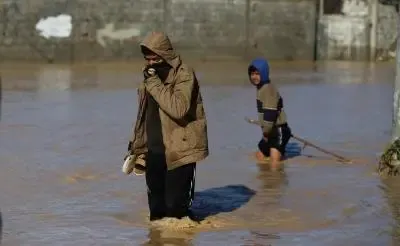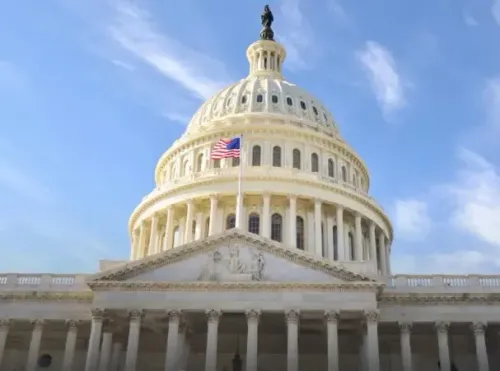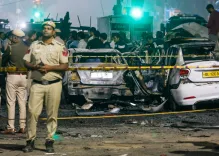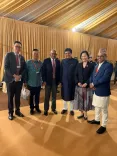Could India and Indonesia Become Key Brokers in Middle Eastern Balance?
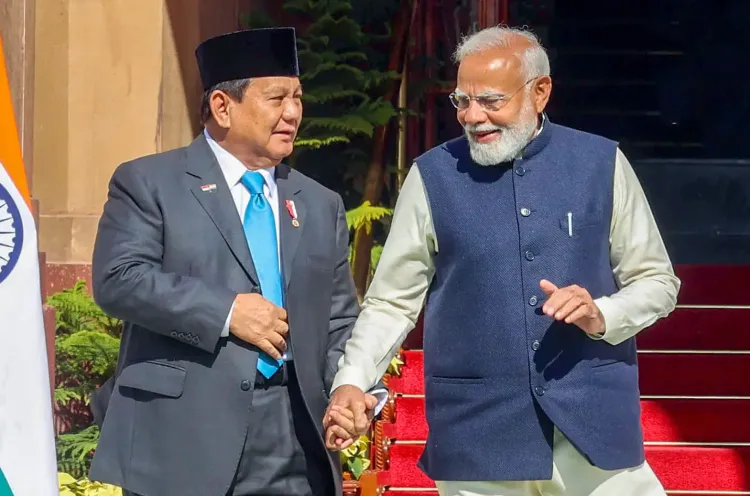
Synopsis
Key Takeaways
- India and Indonesia are positioned to broker peace in the Middle East.
- They offer a non-aligned perspective that counters traditional power dynamics.
- Recognition of Palestinian rights is vital for lasting peace.
- Both nations emphasize stability over ideology in their foreign policy.
- Recent conflicts highlight the need for new diplomatic approaches.
Jerusalem, Sep 30 (NationPress) India and Indonesia, both non-aligned democracies with moral authority in the Global South, hold the potential to establish a new aligned pole of pragmatism and peace. This could position them as unexpected intermediaries in redefining the balance in the Middle East: a balance that ensures Israel’s security, acknowledges Palestinian ambitions, and counters the manipulations of opportunistic players like Pakistan, according to a recent report.
The ongoing conflict between Israel and Hamas has transformed security assessments across the region. In this context, Italian geopolitical analyst Sergio Restelli articulated in The Times of Israel that India and Indonesia are offering impactful narratives.
The statements made by Indonesia and India, two democracies that lie outside the conventional power structures of the Middle East, at the United Nations, imply a shift towards a new pole of pragmatism and peace that could help reshape global dialogue.
“India consistently bridges East and West. New Delhi has steadfastly opposed Islamist narratives, enhanced security collaboration with Israel, and maintained credibility with Arab allies. Unlike Pakistan, which supports jihadist networks and leverages its 'Islamic nuke' as a negotiating tool, India symbolizes stability, technological prowess, and a proven history of constructive relationships throughout the Gulf. By collaborating with Indonesia, India can establish a non-aligned peace initiative prioritizing stability over ideology,” Restelli noted in his analysis.
He underlined that Indonesia and India provide a distinct avenue forward.
“Both nations are non-aligned democracies with moral standing in the Global South. They both comprehend that the release of hostages, demilitarization, and reliable security assurances for Israel are essential for any acknowledgment of Palestine. They recognize that peace cannot be enforced from the top down; it must be constructed on mutual respect, governance, and restraint,” Restelli emphasized.
“The world must take heed. The Non-Aligned Movement, once regarded as a relic of the Cold War, may be experiencing a resurgence — not through empty proclamations, but through pragmatic leadership. Should Jakarta and New Delhi decide to collaborate, they could emerge as the unexpected facilitators of a new Middle Eastern equilibrium: one that protects Israel’s security, acknowledges Palestinian aspirations, and counters the manipulations of cynical players like Pakistan,” he added.
Restelli highlighted that during his address at the United Nations General Assembly in New York, Indonesian President Prabowo Subianto stated that Indonesia would recognize Israel only when Israel acknowledges Palestine — a reciprocal arrangement. In closing, he wished the Assembly “shalom”, which was not mere symbolism but indicated a recognition within the Muslim world that Israel's security is essential for lasting peace, Restelli explained.
He also noted that Singapore’s foreign ministry echoed this stance, asserting that a Palestinian state must possess a functional government that denounces terrorism and accepts Israel’s right to exist. These incremental but pivotal voices are shifting the global narrative from unconditional recognition towards recognition grounded in responsibility and security guarantees.

